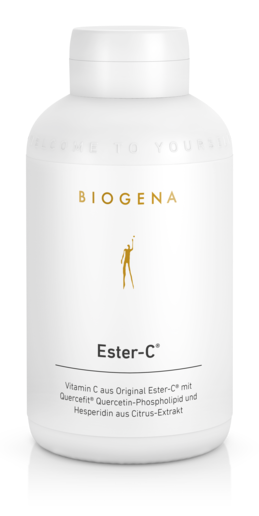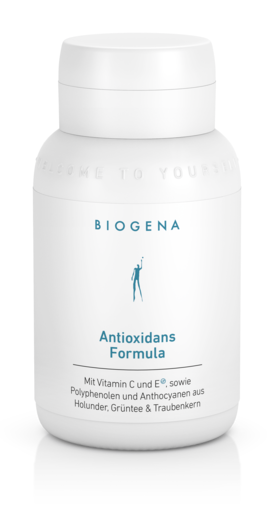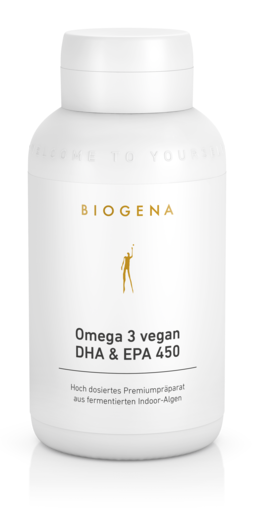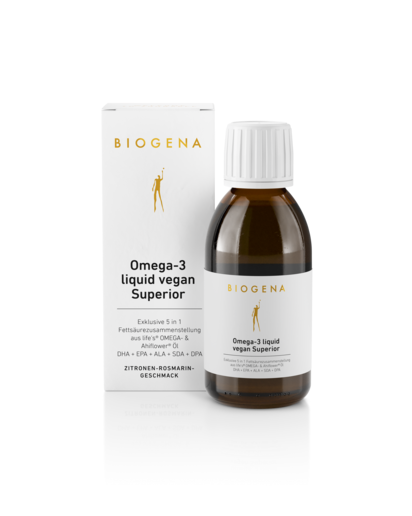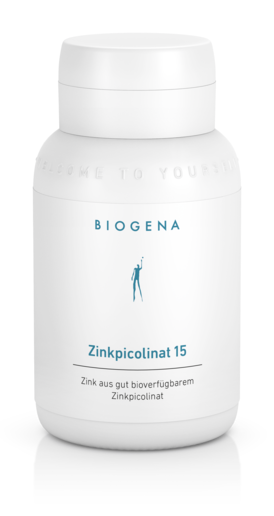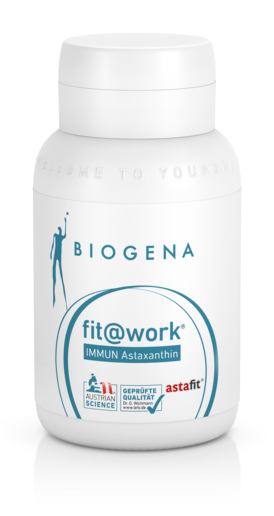Supplements for eye and vision health
Our eyes - what would our world be like without them? They not only make our lives more colorful, but they also speak volumes about the world we live in. This makes it all the more important to give ongoing attention to our windows to the world. But how? Let us shed light on the darkness.


Whether near or far, shapes or colours - our eyes tell us more than 1000 words could. To maintain their acuity, our visual organs need the support of certain eye nutrients.
Our eyes: a highly complex sensory organ.
Our eyes are highly complex, sensitive sensory organs that work for us continuously. At every moment, these visual organs pick up light and colour stimuli, which are converted into electrical impulses by the retina and then transmitted via the optic nerve to the brain for processing. In the centre of the retina is the “yellow spot”, also called the “macula lutea”, and that is where our sharpest vision is also found. This area owes its name to the two carotenoids lutein and zeaxanthin, which are found there in high concentrations and are responsible for the yellowish colouring, among other things.
What is good for the eyes?
To preserve the sharpness of our eyes, we need to offer them protection. If you want to do your eyes good, you should protect them from environmental influences and intense UV radiation, give them regular breaks and avoid smoking. The latter can eventually impair the blood supply to the eye. On the other hand, a healthy lifestyle characterised by active exercise and a colourful diet rich in vital substances makes our visual system happy - but which nutrients catch the eye?
Important nutrients and vitamins for the eyes.
Who doesn’t know the old phrase “a feast for the eyes”? A deeper delve reveals that this saying could not be more apt, because for our eyes, the right nutrients actually turn out to be pure “eye candy”.
The most important eye nutrients at a glance.
DHA
Both the retina and the brain consist to a significant extent of the essential omega-3 fatty acid DHA. This makes DHA a “favorite meal” for babies in the womb, whose brain and eye development is supported by a good maternal supply*. But DHA also helps adults not to lose focus - 250 mg daily can help to maintain normal vision.
* The positive effect occurs with a daily intake of 200 mg DHA in addition to the recommended daily intake of omega-3 fatty acids for adults (i.e. 250 mg DHA and EPA).
Vitamin A
Vitamin A (the “eye vitamin”) is an elementary building block of our visual purple (rhodopsin). In addition, the fat-soluble vitamin contributes to the maintenance of normal vision. For people with an omnivorous diet, the body draws the necessary vitamin A primarily from animal products (such as liver, meat, or fish). With a predominantly vegetarian or vegan diet, on the other hand, intensive green and yellow-orange vegetables and fruits provide vitamin A precursors (provitamin A carotenoids), which can be converted to vitamin A by our body with varying degrees of efficiency.
Carrot myth?
Many sayings have been with us since childhood. Some of them can be scientifically refuted nowadays, while others contain at least a grain of truth. One such is grandma's advice to eat carrots for the eyes. The root vegetable is rich in beta-carotene. Beta-carotene not only gives carrots their bright orange color but it can also be converted by our body into vitamin A - and this helps to maintain our eyesight.
Antioxidants
UV light, cigarette smoke, and other factors lead to the build-up in our eyes of aggressive oxygen compounds (free radicals), which are continuously neutralized by our bodies. To maintain a healthy balance and protect the eye from stress, our body can count on a whole team of radical scavengers (antioxidants). These protective substances include the two trace elements selenium and zinc, as well as vitamins C and E. All four help protect the cells against oxidative stress.
Curious eyecatchers
Did you know…
- … that the human iris is as unique as a fingerprint?
- … that blinking is the fastest movement we are capable of?
- … that our eyes paradoxically water when they are very dry?
- … that people with a persistent gloomy mood perceive contrasts less well?
- … that you can’t sneeze with your eyes open?
- … that our pupils dilate by 45% when we find someone attractive?
What ingredients in food supplements should you look out for to keep your eyes healthy?
Tailor-made nutritional supplements can help us supply our “windows to the world” with targeted doses of key nutrients. While DHA, vitamin A, and zinc support the maintenance of normal vision, the trace elements zinc and selenium as well as vitamins C and E can help protect cells from oxidative stress. At Biogena, these nutrients are combined with high-quality plant extracts - such as blueberry, acerola, ginkgo, and grape seed extract.
But it is not only the chosen nutrients that make an outstanding preparation for the eyes. It is also the experience, intuition and scientific know-how that goes into its development. Choosing the right raw materials, compositions and dosages for an eye preparation is a fine art.
What stresses our eyes?
Looking for keys, surfing the internet, staring into the distance - our eyes are always ready. Yet there are stress factors that make them see red.
Stress factors for our eyes:
Environmental influences: sun, ozone, smog, dust, heat, cold
Air conditioners, fans, draughts, wind
Hours of screen work (also: TV, tablet, mobile phone)
Cigarette smoke
Contact lenses
- Cosmetics
Lack of sleep
Seven tips for healthy eyes
Our visual apparatus has never been so challenged as it is today. Hours of screen work while glancing at tablets, smartphones, and the like cause our eyelids to blink too little and our eyes to wander too seldom into the distance. Environmental influences such as UV radiation, air pollution, or pollen also take their toll on our eyes. This makes it all the more important to care for our visual apparatus with nutrients and little treats for the eyes.
1. Blinking as a digital time-out
Hours of screen work do not leave our eyes unscathed. The concentrated stare reduces the blink frequency - our eyes are wetted with less tear fluid. This makes it all the more important to regularly close the eyelids or deliberately blink 10 times in succession in everyday office life.
2. Change of view for screen stress
On days of digital exertion, a targeted change of view can help relieve eye strain. A simple method for this is the 20-20-20 rule: this recommends focusing on an object that is at least 20 feet (= 6 meters) away for 20 seconds every 20 minutes.
3. Outdoor sports
Like any other muscle, our eye muscles want to exercise. By alternating between close and distant vision and between sharp focusing and peripheral perception, spending time outdoors gives the eyes an optimal workout.
4. Beware of draughts!
Our eyes love fresh air, but not draughts. It is therefore best to avoid direct draughts from open windows, fans, and air conditioners in cars, planes, and indoor spaces.
5. The right room climate
Our eyes feel most comfortable at room temperatures of 20 to 24 degrees and a relative humidity of 40 to 70%. Unfortunately, many rooms are too dry and overheated, especially in the cold season. Humidifiers, water bowls, and green plants can provide a better room climate when the heating is on.
6. Sun out, shades on
There’s no life without sunshine. But this source of energy also has its downsides. The sun’s UV radiation can damage not only our skin but also our eyes. This makes it all the more important, especially on sunny days, to protect our eyes with sunglasses that offer 100% UV protection.
7. Healthy rest
When we sleep, it is not only our bodies that recharge their batteries for the new day. Our eyes also enjoy this healthy time out. After all, they don't have to work - the muscles relax and our eyesight recovers.
Conclusion
Seeing is (not) a wonder to be taken for granted. Give your eyes exercise, targeted time-outs, and the right nutrients so that you can enjoy beautiful moments together for a long time to come.
Literature from the author.
Formulas with DHA, vitamin A, zinc, selenium, vitamin C, and E are ideal. They protect your eyes and help maintain normal vision.
Yes, supplements that include DHA, vitamin A, zinc, and antioxidants can support visual function and protect your eyes from strain.
Vitamin A supports vision directly. Vitamin C and E work as antioxidants to protect your eyes from oxidative stress.
Take regular screen breaks, wear UV-protective sunglasses, eat a balanced diet, get plenty of sleep, and practice gentle eye exercises. Supplements with essential micronutrients can also make a difference.



